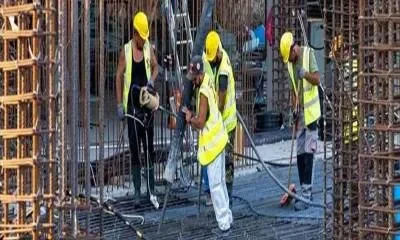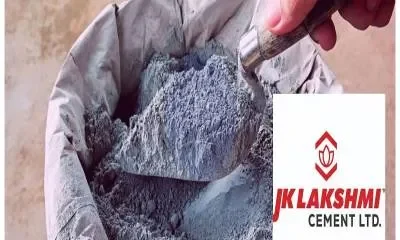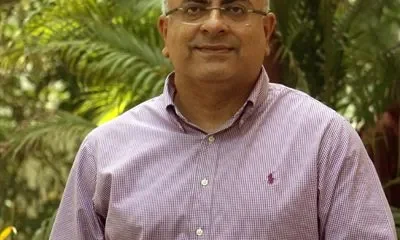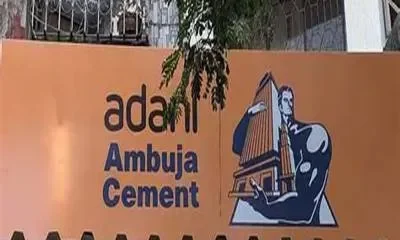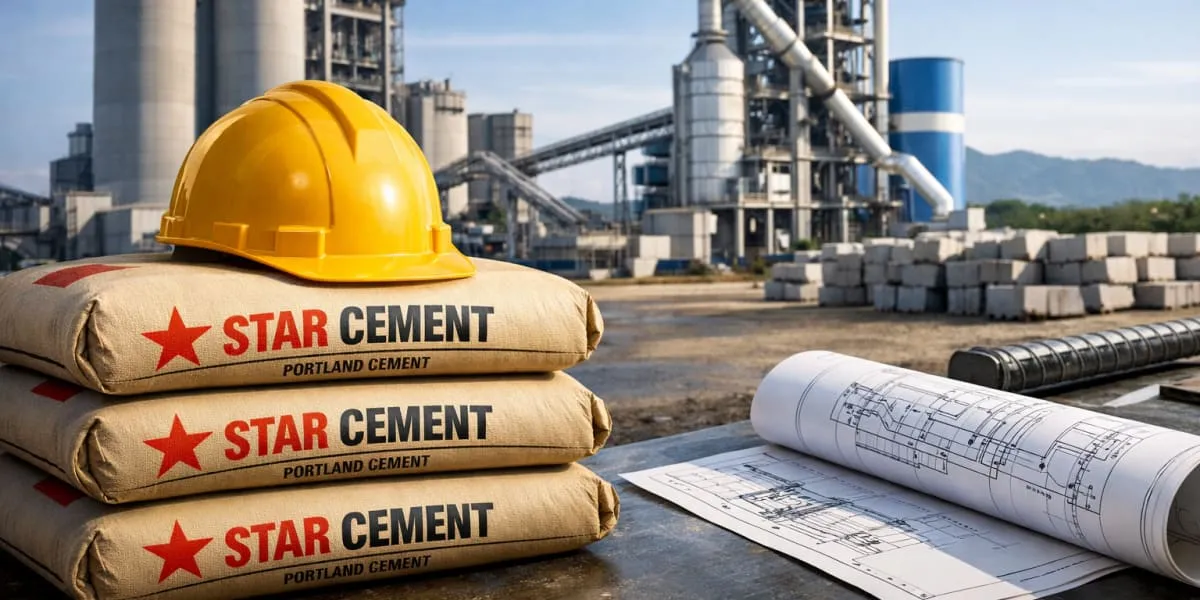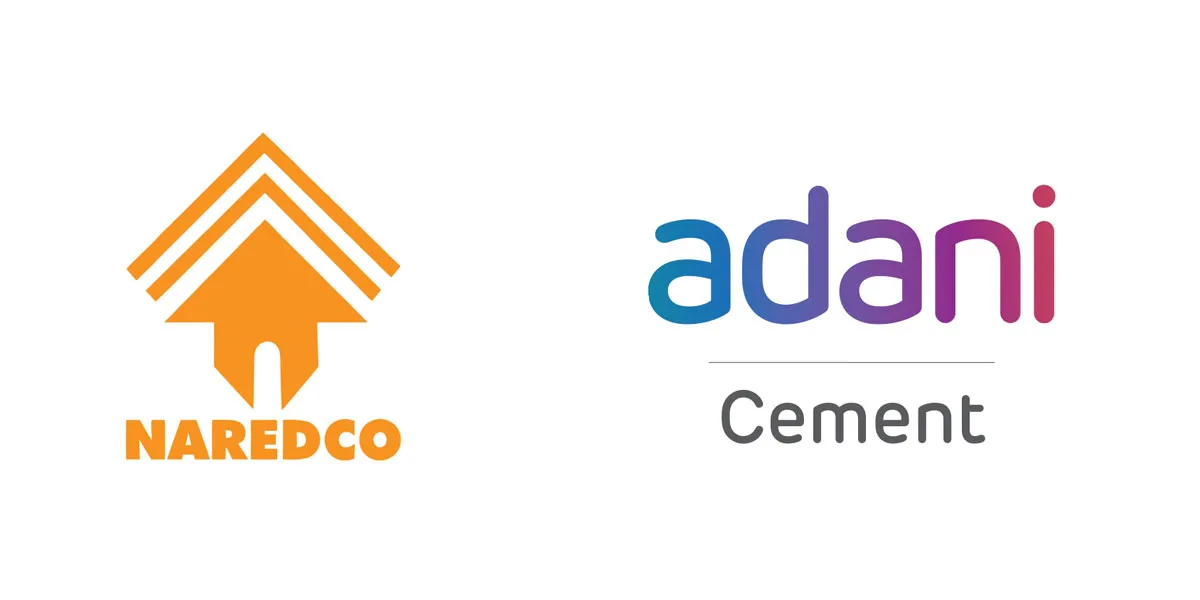The unveiling of Union Budget 2024 marked a pivotal moment for India’s economic trajectory, blending ambitious growth targets with pragmatic fiscal policies. ICR gets key stakeholders from the cement sector to voice their views about the Budget.
In the Interim Budget 2024-25, the honourable Finance and Corporate Affairs Minister, Nirmala Sitharaman, had declared an 11.1 per cent increase in capital expenditure for infrastructure, raising the outlay from `10 lakh crore to Rs.11.11 crore, or 3.4 per cent of GDP. Based on these revelations, the cement industry was optimistic about significant investments in highways, roads, bridges and urban development projects to be declared in the Union Budget 2024. The industry was not disappointed. Ambitious initiatives such as Bharatmala and Sagarmala are now offering immense growth potential for the sector, provided they receive adequate funding.
The Indian cement industry was eagerly anticipating a considerable boost in budget allocations for housing and infrastructure projects, as together these sectors constitute over 80 per cent of cement demand in the country. Following are the highlights of Union Budget 2024 with regards to these expectations.
Urban development
- Formulation of Transit Oriented Development plans and strategies to implement and finance 14 large cities above 30 lakh population.
Urban housing
- Investment of Rs.10 lakh crore, including the central assistance of Rs.2.2 lakh crore in the next 5 years, under PM Awas Yojana Urban 2.0 proposed to address the housing needs of 1 crore urban poor and middle-class families.
Infrastructure
- Rs.11,11,111 crore (3.4 per cent of GDP) to be provided for capital expenditure.
Infrastructure investment by state governments
- Provision of Rs.1.5 lakh crore for long-term interest free loans to support states in infrastructure investment.
Pradhan Mantri Gram Sadak Yojana (PMGSY)
- Launch of phase IV of PMGSY to provide all-weather connectivity to 25,000 rural habitations.
We bring you reactions to the Union Budget 2024 by industry experts:
“The Union Budget 2024-25 presents a compelling roadmap for India’s infrastructure and economic growth. Its focus on productivity, job creation, and urban development aligns with our vision for a resilient India. The substantial capital expenditure allocation of Rs.11.11 lakh crore demonstrates the government’s commitment to nation-building, benefiting the construction materials sector, including cement. We commend the `1.48 lakh crore investment in education, employment, and skill development, which will enhance workforce capabilities. The emphasis on sustainability and clean energy, along with the PM Surya Ghar Muft Bijli Yojana, resonates with JK Lakshmi Cement’s green initiatives. As a leading cement manufacturer, we’re prepared to contribute significantly to India’s infrastructure development, leveraging these policies to build a stronger, more sustainable future.”
– Arun Shukla, President and Director, JK Lakshmi Cement
“We welcome the Government’s consistent approach towards Fiscal consolidation, supporting Capex in Infrastructure by reconfirming the allocation of Rs.11.11 lakh crore in the budget as also additional allocations towards improving Urban and Rural Infrastructure. We also welcome the government’s focus on employment generation, skilling, Woman empowerment, MSMEs and climate change mitigation as well as their encouragement to the States to carry out land and labour reforms and improve Ease of doing Business further. We believe this Budget paves the way for the next generation of reforms which we are confident will lead India to its deserved place of being Viksit Bharat.”
– Sunil Mathur, Managing Director and Chief Executive Officer, Siemens
“We welcome the government’s strong commitment to inclusive development in this year’s budget with the vision of a ‘Viksit Bharat’. The focus on nine priority areas and employment will entail sustained efforts to generate ample opportunities for all. The government’s decision to maintain the interim capital expenditure target of Rs.11.11 lakh crore — the highest allocation ever at 3.4 per cent of GDP — reflects the sustained reliance on infrastructure development to drive economic growth. Additionally, the allocation of Rs.2.66 lakh crore for rural development, including rural infrastructure projects, will play a remarkable role in transforming the rural economy. The women-first initiatives for enhancing women’s participation in the labour force are also a welcome move. This focus on innovation, infrastructure, and inclusive development will ensure sustainable progress across the nation and also ensure that the impact reaches the common man.”
– Akshat Seth, Managing Director and CEO, HIL (a CK Birla group unit)
“Investments in infrastructure, urban planning, and digitization of land records are crucial steps towards enhancing the real estate sector in Hyderabad. We believe that these measures will not only boost the sector’s contribution to the economy but also address the housing needs of millions, driving inclusive growth and development.”
– V Rajashekhar Reddy, President,CREDAI Hyderabad
“The 2024 Budget’s emphasis on revising the personal income tax structure and increasing the standard deduction for salaried individuals from Rs.50,000 to Rs.75,000 is a welcome move. This initiative, coupled with the encouragement to states to lower stamp duty and the proposal for reduced stamp duty for women purchasing property, will make home ownership, particularly for first-time buyers, more accessible and financially viable. Additionally, the focus on affordable housing, with a substantial `10 lakh crore investment under the PM Awas Yojana-Urban, aims to address the housing needs of 1 crore urban poor, signalling robust support for residential real estate. The emphasis on industrial parks and infrastructure development will further bolster economic growth, paving the way for a dynamic real estate market.”
– Vishal Raheja, Founder and Managing Director, InvestoXpert
“The Union Budget 2024 was built on the foundation of Viksit Bharat. A strong focus was put on solar energy. The remarkable achievement of PM Surya Ghar Muft Bijli Yojana with 1.28 crore registrations and 14 lakh applications reflected the growing public awareness and alignment with the government’s vision of a solar-powered India. As a leading solar panel manufacturer, this motivates us to make solar energy more adoptable, affordable, and
accessible nationwide.
The exemption of customs duty on lithium, a crucial mineral used in the renewable energy sector, will reduce costs, making lithium-based technologies more affordable. The pumped storage policy which includes pumped storage projects for electricity storage will facilitate the smooth integration of the growing share of renewable energy into the overall energy mix, paving the way for a sustainable energy future. Imposing customs duty on the import of solar glass for solar cell and module production will promote domestic manufacturing and boost the economy. The increase of BCD on non-biodegradable PVC flex banners from 10 to 25 per cent is a commendable step towards environmental conservation. Power projects including setting up of a new 2400 MW power plant at Pirpainti, Bihar will add Bihar in the category of solar powered states, overall enhance the power quotient, add to the existing power capacity and create jobs. Overall, the budget highlighted the remarkable changes that will contribute to the development of a nation we all envisioned.”
– Raman Bhatia, Founder and Managing Director, Servotech Power Systems
“The removal of angel tax is a welcome move for India’s startup ecosystem. This, coupled with the establishment of a Rs.1,000 crore VC fund for the space economy, will foster innovation. The budget’s focus on manufacturing, with the introduction of plug-and-play industrial parks, is progressive. MSMEs will benefit significantly from the credit guarantee scheme, new assessment models by PSU banks and increased Mudra loan limits. The substantial allocation of `11 lakh crore for infrastructure, especially nature resilient is crucial for building a Viksit Bharat. The strategic shift towards nuclear energy as a major power source is visionary. Finally, the emphasis on cultural heritage through the development of the Vishnupad, Mahabodhi temple corridors, Rajgir and Nalanda is a welcome addition.”
– Rahul Garg, CEO and Founder, Moglix
“The recent budget has been highly favourable for the energy sector, with the government setting an ambitious goal of achieving 500 GW of renewable power by 2030. A key component of this plan is encouraging homeowners to adopt solar energy, facilitating a swift transition to solar power. To support this, the government has allocated Rs.70,000 crores in subsidies for homes that switch to solar energy. This is a crucial and forward-thinking initiative for the country’s future, and we express our gratitude to the government for taking this significant step.”
– Saurabh Marda, Co-founder and Managing Director, Freyr Energy
“I would like to congratulate the Government for presenting a visionary Budget that focuses on sustainable and inclusive economic growth. I particularly welcome several announcements that reflect the Government’s continued support for the renewable energy sector. The impetus on PM Surya Ghar Muft Bijli Yojana will help fast track nationwide adoption of rooftop solar, helping expand our overall RE capacity. The proposed investment in Pumped Storage programmes is a much-needed step that will ensure smoother integration of growing RE, leading to more reliable supply of green power and grid stability. The focus on transitioning hard to abate industries to greener alternatives will catalyse the C&I sector’s journey towards net zero. Introduction of a taxonomy for climate finance will help attract much needed capital for boosting climate resilience. Finally, the expanded duty exemptions will also help propel the RE sector ahead. This is a positive budget for the sector that should help continue the momentum of India’s energy transition and Hero Future Energies remains committed to partnering with the Government in enabling this mission.”
– Srivatsan Iyer, Global CEO, Hero Future Energies


 Economy & Market4 weeks ago
Economy & Market4 weeks ago
 Economy & Market4 weeks ago
Economy & Market4 weeks ago
 Concrete1 month ago
Concrete1 month ago
 Concrete1 week ago
Concrete1 week ago






